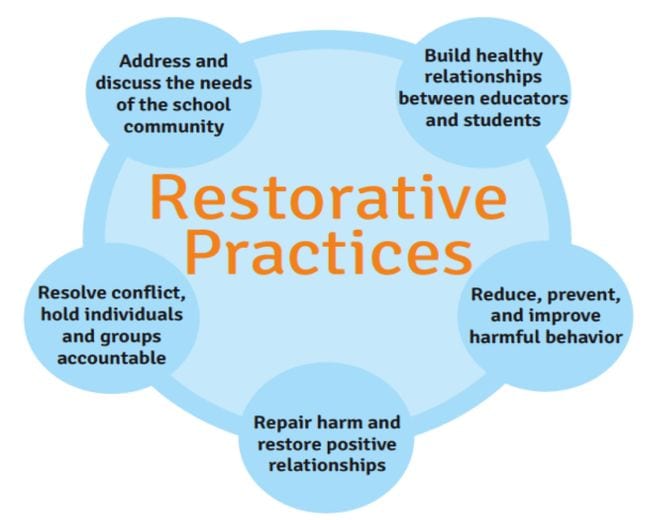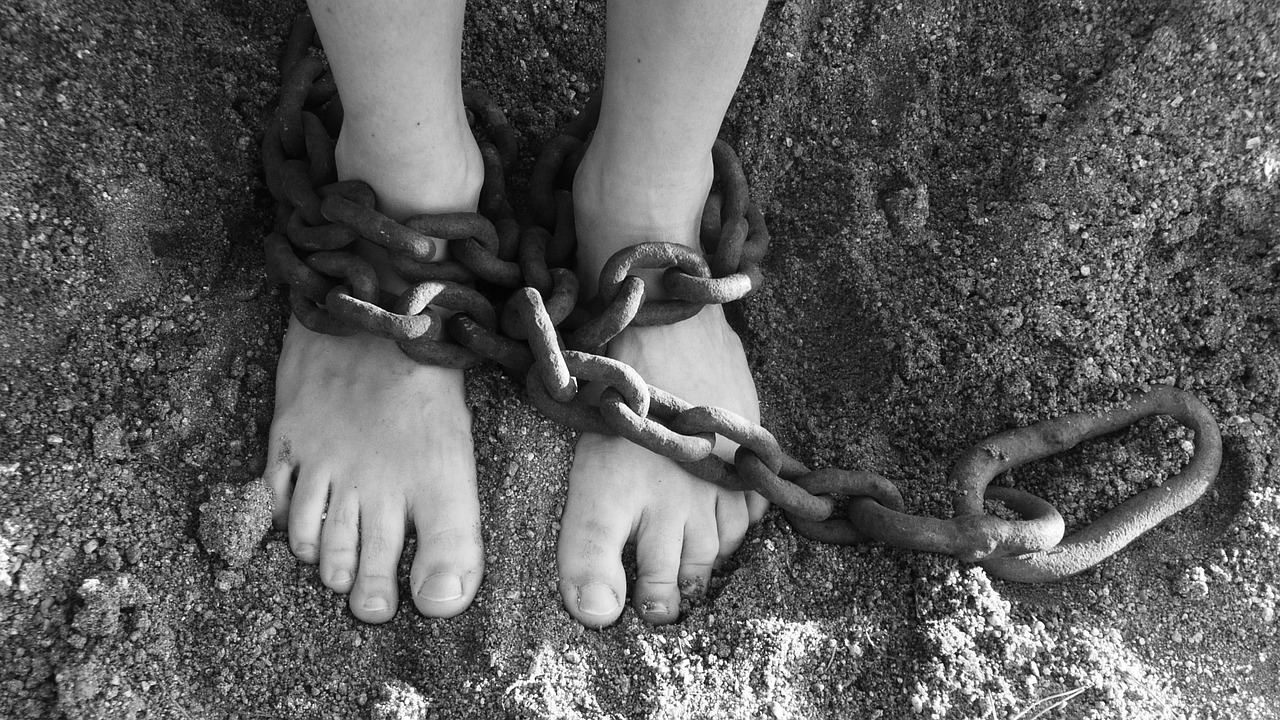Table of Contents
When we discuss the criminal justice system, our focus often centers on offenders and their rehabilitation. However, it’s equally important to address the needs and well-being of crime victims. In recent years, there has been a growing recognition of the importance of victim services in jails. This article explores the significance of providing support to victims within the context of the criminal justice system, with a particular focus on jails.
“When we discuss the criminal justice system, our focus often centers on offenders and their rehabilitation. However, it’s equally important to address the needs and well-being of crime victims. In recent years, there has been a growing recognition of the importance of victim services in jails. This article explores the significance of providing support to victims within the context of the criminal justice system, with a particular focus on jails.
Crime victims endure physical, emotional, and sometimes financial hardships as a result of the offenses committed against them. Their voices, experiences, and healing are central to the pursuit of justice. Ignoring their needs not only perpetuates their suffering but can also hinder the overall effectiveness of the criminal justice system.
Victim services in jails encompass a range of initiatives, from crisis counseling and legal assistance to financial support and protection. These services not only help victims cope with the trauma they’ve experienced but also empower them to actively participate in the legal process. When victims feel heard, supported, and informed, they are more likely to engage with law enforcement and the judicial system, which can lead to more successful prosecutions and increased public trust.
Incarceration can be a particularly challenging time for victims, especially if the offender is a family member or someone they know personally. Being in close proximity to the offender can exacerbate the victim’s trauma, creating an environment where they may feel unsafe or vulnerable. To address this, some jails have implemented measures to ensure the physical separation of victims from their perpetrators, providing a sense of security during an emotionally turbulent period.
Moreover, victim services extend beyond the walls of the jail. They include assistance with navigating the legal system, access to information about the offender’s status, and resources for healing and recovery. These services aim to empower victims to rebuild their lives and move forward with a sense of closure.
Recognizing the importance of victim services in jails not only promotes a more compassionate and holistic approach to the criminal justice system but also has the potential to reduce recidivism. When victims are given the support they need, it can help break the cycle of crime by addressing the underlying issues that contribute to offending behavior.
In conclusion, the inclusion of victim services within the context of the criminal justice system, especially in jails, is a vital step toward achieving a more balanced and just system. It not only recognizes the rights and needs of victims but also contributes to a more effective and empathetic approach to law enforcement and rehabilitation.”
To delve further into this matter, we encourage you to check out the additional resources provided here: Crime Prevention & Criminal Justice Module 11 Key Issues: 3. The …
Addressing Trauma
Crime victims often experience physical, emotional, and psychological trauma. In many cases, these individuals may also know or be related to the offenders incarcerated in jails. Providing victim services acknowledges the trauma they’ve endured and offers avenues for healing and recovery.
Crime victims often experience physical, emotional, and psychological trauma that can leave lasting scars on their lives. The aftermath of a criminal incident can be an overwhelming and isolating experience, as victims grapple with feelings of fear, anger, and vulnerability.
What adds a unique layer of complexity to this situation is when victims have a personal connection to the offenders incarcerated in jails. They might be family members, friends, or acquaintances, making the trauma even more challenging to navigate. These individuals often find themselves in a difficult position, torn between seeking justice for the harm done to them and harboring complex feelings for someone they once knew or cared about.
In recognizing the multifaceted needs of crime victims, providing victim services is not just a compassionate choice but a crucial one. These services extend a helping hand to those who have endured the unimaginable, offering support, resources, and guidance along the path to healing and recovery.
Victim services encompass a range of assistance, from counseling and therapy to legal support and access to community resources. They create a safe and empathetic space where victims can share their experiences, confront their trauma, and explore avenues for closure and justice. By doing so, victim services acknowledge the validity of their pain and struggle, reinforcing the belief that every victim deserves to be heard and supported.
Furthermore, these services play a pivotal role in breaking the cycle of violence. When victims are given the opportunity to heal, they are less likely to perpetuate the cycle of crime themselves. It’s a proactive approach to creating safer communities and addressing the root causes of criminal behavior.
In conclusion, providing victim services is an essential component of a just and compassionate society. It not only acknowledges the trauma experienced by crime victims but also provides them with the necessary tools to rebuild their lives. By supporting these individuals, we take a significant step toward not only helping victims heal but also in preventing future victimization and fostering a more empathetic and resilient society as a whole.
To expand your knowledge on this subject, make sure to read on at this location: Addressing Trauma in Women’s Prisons | National Institute of Justice

Information and Support
Victims need information about the criminal justice process, their rights, and available support services. Victim advocates in jails can serve as a crucial source of information, guiding victims through the complexities of the legal system and connecting them with resources.
Victims of crime often find themselves thrust into an unfamiliar and daunting legal landscape, filled with complex processes and terminology. To navigate this challenging terrain, victims require not only empathy and support but also essential information about their rights, the criminal justice process, and the various support services available to them. This is where victim advocates in jails play a pivotal role.
Guiding Through the Legal Maze: The criminal justice process can be labyrinthine, especially for those encountering it for the first time. Victim advocates serve as knowledgeable guides, explaining each step of the process in clear and accessible language. They ensure that victims understand their rights, such as the right to be informed about court proceedings and the right to be heard at critical stages.
Providing Emotional Support: Beyond just relaying information, victim advocates offer a compassionate and empathetic presence. Victims often experience a whirlwind of emotions, including fear, anger, and confusion. Advocates provide a steady support system, offering a shoulder to lean on and a compassionate ear to listen.
Connecting to Resources: Victims may require a range of services, from legal assistance and counseling to financial support and safety planning. Victim advocates are well-versed in available resources and can connect victims with the appropriate services tailored to their needs.
Enhancing Victim Safety: Safety is a paramount concern for victims, particularly if they fear retaliation or further harm. Advocates can help victims develop safety plans, secure protection orders, and navigate the legal avenues for ensuring their well-being.
Ensuring Victims Are Heard: Victim advocates help amplify the voices of victims within the criminal justice system. They ensure that victims’ concerns, preferences, and perspectives are conveyed to prosecutors, judges, and other relevant parties, thereby increasing victims’ agency in the process.
Advocacy Beyond the Legal System: Victim advocates often continue to support victims beyond the confines of the legal process. They may assist with accessing counseling, support groups, and financial assistance programs, which can be essential for a victim’s healing and recovery.
Empowering Survivors: By providing information and support, victim advocates empower survivors to make informed decisions about their involvement in the criminal justice process. This can lead to greater satisfaction with the legal system and a sense of regaining control over their lives.
In conclusion, victim advocates in jails play an indispensable role in ensuring that victims are not left to navigate the complexities of the criminal justice system alone. Their guidance, support, and expertise help victims regain a sense of agency, access vital resources, and move forward on the path to healing and recovery. By recognizing the importance of victim advocates, we can create a more compassionate and responsive criminal justice system that prioritizes the needs and rights of those who have been victimized.
For additional details, consider exploring the related content available here Victim Services – Louisiana Department of Public Safety & Corrections

Restitution and Compensation
Many victims face financial burdens due to medical expenses, property damage, or lost wages resulting from the crime. Victim services can help victims seek restitution or compensation from the offenders, aiding in their recovery and easing the financial strain.
The aftermath of a crime can bring about a host of challenges for victims, extending far beyond the emotional and psychological toll. Financial burdens often compound the distress, with victims grappling with medical bills, property damage, and lost wages due to the crime. In recognition of these challenges, victim services have emerged as a critical component of the criminal justice system, offering support, guidance, and resources to help victims navigate the path to recovery and financial stability:
Restitution and Compensation: Victim services provide victims with information and assistance in seeking restitution or compensation from offenders. This process involves holding offenders financially accountable for the harm they’ve caused. Restitution orders require offenders to repay victims for specific losses, such as medical expenses, counseling fees, or property repair costs. Compensation programs, on the other hand, provide financial assistance to victims, often funded by the state or federal government.
Navigating Legal Procedures: Victim services help victims understand the legal procedures involved in seeking restitution or compensation. They offer guidance on how to document losses, file claims, and communicate with relevant authorities and the court system. This support is invaluable for victims who may be unfamiliar with the legal process.
Access to Resources: Victim services connect victims with resources that can help alleviate financial burdens. This may include referrals to nonprofit organizations, government agencies, or community assistance programs that provide financial aid, housing support, or food assistance.
Emotional Support: Beyond financial assistance, victim services offer emotional support and counseling to help victims cope with the trauma and stress associated with the crime. Addressing the emotional aspect is essential for an individual’s overall well-being and recovery.
Advocacy: Victim advocates often act as liaisons between victims and the criminal justice system. They can advocate for the victim’s rights, ensuring that their needs and concerns are heard and considered during legal proceedings.
Preventing Revictimization: By providing financial support and assistance, victim services can help prevent revictimization. Victims who receive the necessary support and resources are better equipped to rebuild their lives and are less likely to fall into situations that make them vulnerable to crime again.
Community Reintegration: Victim services often extend their support to help victims reintegrate into their communities. This includes assistance with job placement, education, and finding safe housing, all of which play a vital role in achieving financial stability and independence.
Raising Awareness: Victim services also play a role in raising awareness about the financial impact of crime and the rights of victims. By shedding light on these issues, they contribute to broader discussions about the importance of support and resources for victims.
In essence, victim services act as a lifeline for individuals who have experienced the financial fallout of crime. They empower victims to seek restitution or compensation, provide essential resources to ease financial strain, and offer emotional support to facilitate healing. By addressing both the tangible and intangible consequences of crime, victim services pave the way for victims to regain control over their lives, fostering a sense of justice and security in the aftermath of adversity.
To delve further into this matter, we encourage you to check out the additional resources provided here: Victim Services | Iowa Department of Corrections

Safety and Protection
Victims may have concerns about their safety, particularly if the offender is incarcerated in the same jail or is set to be released. Victim services can work with law enforcement and correctional facilities to develop safety plans and secure protection orders when necessary.
The safety and well-being of victims, especially in cases where the offender is incarcerated or soon to be released, are paramount concerns that require comprehensive support and planning. Victim services play a crucial role in ensuring that victims can navigate these challenging situations with confidence and security.
Safety Assessment: Victim services professionals conduct thorough safety assessments to understand the unique risks and needs of each victim. These assessments take into account the victim’s specific circumstances, the offender’s history, and any existing protection orders or restraining orders.
Safety Planning: Based on the safety assessment, victim advocates collaborate with victims to develop personalized safety plans. These plans include practical steps and strategies to reduce risk, such as changing contact information, adjusting daily routines, or seeking secure housing.
Coordination with Law Enforcement: Victim services providers liaise with law enforcement agencies to ensure victims receive the necessary protection and support. This may involve sharing critical information about the victim’s safety concerns and coordinating efforts to monitor the offender’s actions.
Protection Orders: When circumstances warrant it, victim services can assist victims in obtaining protection orders or restraining orders against the offender. These legal measures can provide a legal basis for keeping the offender away from the victim and establishing consequences for violations.
Emergency Assistance: Victim advocates are available to provide immediate assistance in emergency situations. This may include arranging for emergency shelter, transportation, or crisis intervention services when the victim’s safety is at immediate risk.
Victim Notification: In cases where the offender’s release date is approaching, victim services can help victims stay informed about the offender’s status and release plans. This allows victims to make informed decisions regarding their safety.
Access to Counseling and Support: Victim services often provide access to counseling and support groups for victims. These services help victims cope with the emotional and psychological trauma they may have experienced and empower them to regain control over their lives.
Legal Advocacy: Victim advocates can assist victims in navigating the legal system, accompanying them to court proceedings, and helping them understand their rights and options within the criminal justice process.
Resource Referrals: Victim services professionals maintain extensive networks of resources and referrals. They can connect victims with other support services, such as housing assistance, financial assistance, and healthcare.
Education and Awareness: Victim services providers work to raise awareness about victims’ rights and available resources. They also educate victims on safety strategies and the importance of reporting any violations or threats to law enforcement promptly.
Continuous Support: Victim services are not limited to immediate crisis intervention; they offer ongoing support to victims as they rebuild their lives. This support can extend for an extended period to ensure victims feel secure and empowered.
In conclusion, victim services play a pivotal role in addressing the safety concerns of victims, particularly when the offender is incarcerated or about to be released. Through safety assessments, personalized planning, coordination with law enforcement, and access to legal and support services, victim advocates empower individuals to navigate these challenging situations while prioritizing their safety and well-being. By ensuring that victims have the resources and support they need, victim services contribute significantly to helping victims regain control over their lives and move forward with confidence and resilience.
Don’t stop here; you can continue your exploration by following this link for more details: Best Practices Guidelines: Crime Victim Services

Restorative Justice
Restorative justice programs, increasingly used in jails, provide a platform for victims to engage with offenders in a controlled and supportive environment. These encounters can foster understanding, accountability, and closure for victims.
Expanding on the significance and benefits of restorative justice programs within jails, it becomes clear that these programs offer a unique approach to addressing the needs of both victims and offenders:
Empowering Victims: Restorative justice programs empower victims by giving them a voice and a direct role in the resolution process. This active involvement can help victims regain a sense of agency and control over their lives, which is often lost in the aftermath of a crime.
Emphasizing Accountability: Unlike traditional punitive approaches, restorative justice focuses on holding offenders accountable for their actions through face-to-face encounters with victims. These encounters require offenders to take responsibility for the harm they’ve caused, fostering a deeper understanding of the consequences of their behavior.
Promoting Rehabilitation: By engaging with victims and facing the impact of their actions, offenders are more likely to develop empathy and a genuine desire for change. Restorative justice programs can be a catalyst for rehabilitation, encouraging offenders to seek personal growth and take steps toward reintegration into society as responsible individuals.
Building Understanding: The controlled and supportive environment provided by restorative justice programs allows for open and honest communication between victims and offenders. This dialogue can lead to a better understanding of each other’s perspectives, motivations, and experiences. Victims may gain insight into the factors that contributed to the offense, while offenders may come to appreciate the human cost of their actions.
Fostering Healing and Closure: For many victims, the opportunity to ask questions, express their emotions, and receive direct answers from offenders can be incredibly healing. This process can provide a sense of closure that is often elusive within the traditional criminal justice system.
Reducing Recidivism: Research indicates that restorative justice programs are associated with lower recidivism rates among offenders who participate. When offenders confront the harm they’ve caused and actively work toward making amends, they are less likely to reoffend.
Community Reintegration: Successful restorative justice encounters can pave the way for the eventual reintegration of offenders into their communities. When victims and offenders find common ground and agree on a path forward, it can lead to a more seamless transition for the offender upon release from jail.
Preventing Future Victimizations: Restorative justice programs not only address the harm done to current victims but also have the potential to prevent future victimizations. By encouraging offenders to change their behavior and make amends, these programs contribute to building safer communities.
In conclusion, restorative justice programs in jails offer a transformative approach to addressing the complex dynamics of crime, punishment, and healing. By creating opportunities for dialogue, understanding, and reconciliation, these programs contribute to a more compassionate and effective criminal justice system. They emphasize accountability, rehabilitation, and the restoration of relationships, ultimately benefiting not only victims and offenders but also the broader community.
You can also read more about this here: Section 5: Building Partnerships | Working with Victims of Crime

Dedicated Victim Advocates
Jails should designate trained victim advocates who can provide emotional support, information, and referrals to victims. These advocates can act as a bridge between victims and the criminal justice system.
The designation of trained victim advocates within the criminal justice system is a crucial step in ensuring that victims receive the support and resources they need during what can be a traumatic and overwhelming experience. Expanding upon this idea, we can explore the multifaceted roles and benefits of victim advocates:
Emotional Support: Trained victim advocates are essential for offering emotional support to victims of crime. Victims often experience a range of emotions, including fear, anger, and confusion. Advocates provide a compassionate and empathetic presence, offering a safe space for victims to express their feelings and concerns.
Information and Education: Navigating the criminal justice system can be bewildering for victims. Victim advocates serve as knowledgeable guides, explaining legal processes, court procedures, and the rights of victims. This information empowers victims to make informed decisions about their involvement in the legal process.
Referrals to Services: Victim advocates are well-connected to a network of support services. They can refer victims to appropriate resources, such as counseling, crisis intervention, housing assistance, legal aid, and medical care. These referrals help victims access vital services that aid in their recovery.
Safety Planning: In cases involving ongoing threats or safety concerns, victim advocates play a critical role in developing safety plans for victims. These plans may include restraining orders, relocation assistance, or security measures to protect victims from further harm.
Crisis Intervention: Victims may experience crises, such as panic attacks or emotional breakdowns, as a result of the trauma they’ve endured. Victim advocates are trained to provide immediate crisis intervention, offering comfort and assistance during these difficult moments.
Court Accompaniment: Victim advocates can accompany victims to court hearings, providing a reassuring presence and ensuring that victims understand the proceedings. This support can reduce the anxiety and intimidation often associated with court appearances.
Empowerment and Empathy: Victim advocates empower victims by giving them a voice within the criminal justice system. Advocates listen to victims’ concerns and advocate on their behalf, ensuring that their needs and rights are respected and upheld. This sense of advocacy can be deeply validating for victims.
Restitution Assistance: Victim advocates can assist victims in pursuing restitution from offenders, helping them recover financial losses resulting from the crime. This can provide a degree of closure and financial relief to victims.
Community Awareness: Victim advocates also engage in community outreach and education. They raise awareness about victim rights, available services, and crime prevention strategies, contributing to a safer and more informed community.
Legal Reforms and Policy Advocacy: Some victim advocates also engage in advocacy at a broader level, working to improve legislation and policies related to victim rights and services. They may collaborate with lawmakers to enact changes that better protect and support victims.
In conclusion, the role of trained victim advocates is pivotal in bridging the gap between victims and the criminal justice system. Their expertise, empathy, and commitment to supporting victims throughout their journey to recovery not only improve the overall experience for victims but also contribute to a more compassionate and effective criminal justice system that values the rights and well-being of those it serves.
If you’d like to dive deeper into this subject, there’s more to discover on this page: Office of Victim Services | Department of Rehabilitation and Correction
Victim Notification Systems
Jails can implement systems to keep victims informed about the status of the offender, including release dates and parole hearings. These notifications empower victims to take an active role in the process.
Jails can take a proactive approach to victim empowerment by implementing robust systems that ensure victims are well-informed about the status of offenders throughout their incarceration and beyond. Such systems not only prioritize transparency but also enable victims to play an active role in the justice process, fostering a sense of control and support during what can be a challenging journey:
Regular Updates: Keeping victims informed through regular updates about the offender’s status, including milestones like parole hearings and release dates, is crucial. These updates can be provided through various means, such as written notifications, phone calls, or secure online portals. Clear and consistent communication helps victims plan for the future and regain a sense of stability.
Transparency in Parole Hearings: Providing victims with detailed information about parole hearings allows them to actively participate in the process. This might include explaining how parole decisions are made, the criteria considered, and how victims can submit impact statements or attend hearings to share their perspectives with the parole board.
Victim Impact Statements: Jails can facilitate the submission of victim impact statements, allowing victims to express the emotional, physical, and financial consequences of the crime committed against them. These statements are valuable tools for parole boards, providing insight into the impact of the offender’s actions on the victim and their community.
Supportive Resources: In addition to information, jails can offer victims access to support resources. This might include referrals to victim advocacy organizations, counseling services, or legal assistance. Empowering victims with access to these resources can aid in their healing and recovery.
Restorative Justice Programs: Some correctional systems offer restorative justice programs that allow victims and offenders to engage in dialogue, mediation, or reconciliation processes. These programs enable victims to actively participate in the offender’s rehabilitation journey and potentially find closure or forgiveness.
Safety Planning: For victims concerned about their safety upon the offender’s release, jails can assist in developing safety plans. These plans may involve restraining orders, relocation assistance, or referrals to domestic violence shelters, ensuring victims can take proactive measures to protect themselves and their families.
Confidentiality and Security: It is vital to maintain the confidentiality and security of victim information, especially when sharing it with the offender or others involved in the justice process. Implementing robust data protection measures and privacy safeguards is essential to earning and maintaining victims’ trust.
Legal Rights Education: Educating victims about their legal rights within the criminal justice system empowers them to make informed decisions. Knowing their rights regarding notifications, restitution, and participation in hearings empowers victims to actively engage in the process.
Feedback Mechanisms: Jails can establish feedback mechanisms to gather input from victims on the effectiveness of their victim support programs. This feedback can be used to continuously improve services and ensure they meet the evolving needs of victims.
Community Collaboration: Collaboration with local victim advocacy groups, nonprofits, and government agencies can enhance the effectiveness of victim support initiatives. These organizations can provide additional resources, support, and expertise to ensure a comprehensive and victim-centered approach.
In sum, by prioritizing victim empowerment through transparent communication, access to resources, and opportunities for participation, jails can play a pivotal role in helping victims regain a sense of control over their lives. These efforts contribute to a more inclusive and compassionate criminal justice system that recognizes the importance of addressing the needs of both victims and offenders in the pursuit of justice and healing.
Should you desire more in-depth information, it’s available for your perusal on this page: Victim Services Unit

Support Groups and Counseling
Victim services should include access to counseling and support groups, which can help victims cope with trauma, grief, and the challenges they face during and after the legal proceedings.
Victim services play a crucial role in assisting individuals who have experienced trauma due to criminal acts. In addition to the essential support mentioned, which includes access to counseling and support groups, a comprehensive approach to victim services can offer a range of additional benefits:
Emotional Healing: Counseling and support groups provide a safe and empathetic space for victims to express their feelings and work through the emotional aftermath of a crime. Trained professionals can guide them through the healing process, helping them manage symptoms of trauma, grief, anxiety, and depression.
Validation and Empowerment: Victims often struggle with feelings of isolation and self-blame. Victim services can help validate their experiences and empower them to regain a sense of control over their lives. Knowing that they are not alone and that their emotions are valid can be incredibly empowering.
Education and Information: Victim services can educate victims about the legal process, their rights, and the available resources. This knowledge can reduce confusion and anxiety, enabling victims to make informed decisions about their involvement in legal proceedings.
Safety Planning: For victims at risk of further harm, especially in cases of domestic violence or stalking, victim services can assist in developing safety plans. These plans can include protective orders, shelter referrals, and strategies for minimizing risk.
Assistance with Practical Needs: Victims may face practical challenges, such as housing instability, medical bills, or loss of income, as a result of the crime. Victim services can connect them with resources and support to address these needs, reducing the overall impact of victimization.
Legal Advocacy: Victim advocates can assist victims in navigating the criminal justice system, attending court proceedings, and accessing legal protections such as restraining orders or victim compensation funds.
Restitution and Compensation: Victim services can help victims pursue restitution from offenders to cover expenses related to the crime. They can also guide victims through the process of seeking compensation from government programs.
Community and Peer Support: Support groups offer victims an opportunity to connect with others who have experienced similar traumas. Sharing stories, strategies, and coping mechanisms in a group setting can be immensely therapeutic.
Long-Term Support: Trauma can have lasting effects, and victim services can provide ongoing support for as long as needed. This continuity of care is vital for those whose healing journeys extend beyond the immediate aftermath of the crime.
Advocacy for Policy Change: Victim services organizations often advocate for policy changes and improvements in the criminal justice system to better protect and support victims. They play a vital role in raising awareness and pushing for legislative reforms.
In summary, a comprehensive approach to victim services goes beyond just counseling and support groups. It encompasses a range of services and support systems that address the emotional, practical, legal, and long-term needs of victims. Such holistic support not only aids in individual recovery but also contributes to a more compassionate and responsive criminal justice system that prioritizes the well-being of those affected by crime.
If you’d like to dive deeper into this subject, there’s more to discover on this page: USDOJ: FBCI: Victims of Crime

Collaboration with Community Organizations
Jails should collaborate with community-based victim service organizations to ensure a seamless transition of support for victims upon their release. This continuity of care is crucial for long-term recovery.
Collaboration between jails and community-based victim service organizations represents a significant step toward a more comprehensive and compassionate approach to addressing the needs of victims of crime. Beyond just providing immediate support, this collaboration recognizes the importance of ensuring a seamless transition of care for victims upon their release, a crucial element for their long-term recovery and well-being.
One of the key benefits of this partnership is the ability to offer victims a continuous and holistic support system. Jails often serve as a temporary holding facility, and victims may find themselves back in their communities after a relatively short period. By working closely with community-based victim service organizations, the transition from incarceration to daily life becomes more than just a release; it becomes an opportunity for healing and empowerment.
This continuity of care addresses various aspects of victim recovery. First and foremost, it can provide ongoing emotional support, counseling, and trauma-informed care. Many victims of crime suffer from long-lasting emotional and psychological effects, and having access to mental health services in the community can be transformative in helping them regain a sense of normalcy and resilience.
Furthermore, this collaboration can help victims navigate the complexities of the criminal justice system and access resources that are essential for rebuilding their lives. Community-based organizations can offer assistance with legal matters, housing, employment, and other practical needs, reducing the barriers to recovery that victims often face.
Additionally, it’s essential to recognize that the journey to recovery is unique for each individual, and the support they require may evolve over time. By maintaining a connection with community-based victim service organizations, victims have the flexibility to access support when they need it, whether it’s immediately upon release or months down the road. This adaptability is critical in addressing the ever-changing needs of victims as they work toward healing and reintegration.
Moreover, this collaboration promotes a sense of empowerment and agency for victims. They are not merely recipients of services but active participants in their own recovery process. By engaging with community organizations, victims can set goals, make informed choices, and build the skills and resilience necessary to move forward with their lives.
In summary, the collaboration between jails and community-based victim service organizations extends beyond short-term assistance; it paves the way for long-term recovery and empowerment. It acknowledges that the impact of crime doesn’t end with incarceration and recognizes the importance of providing comprehensive support to victims as they navigate the path to healing and rebuilding their lives. Ultimately, this approach fosters a more compassionate and effective response to the needs of crime victims within our communities.
Should you desire more in-depth information, it’s available for your perusal on this page: Section 5: Building Partnerships | Working with Victims of Crime

Education and Awareness
Jails can promote awareness of victim services within their facilities and educate inmates about the impact of their actions on victims. Such programs can encourage empathy and accountability among offenders.
Jails have the potential to serve as transformative spaces by not only addressing the rehabilitation of offenders but also by fostering empathy, responsibility, and accountability. To achieve this, promoting awareness of victim services within correctional facilities plays a crucial role in reshaping the mindset of incarcerated individuals.
First and foremost, creating an environment that emphasizes awareness of victim services can lead to a profound change in the way inmates perceive the consequences of their actions. Education programs within jails can be designed to provide inmates with insights into the physical, emotional, and financial toll their crimes have on victims. Through documentaries, guest speakers, or written materials, inmates can gain a deeper understanding of the real-world impact of their behavior.
Moreover, these programs can highlight the stories and experiences of survivors, putting a human face on the consequences of crime. When inmates hear directly from victims, it can be a powerful catalyst for empathy. It humanizes the suffering caused by criminal actions, prompting offenders to reflect on the harm they’ve inflicted and the pain they’ve caused to others.
In addition to promoting empathy, victim awareness programs can also encourage a sense of personal accountability. Inmates who engage with such initiatives are more likely to take responsibility for their actions and recognize the need to make amends. Restorative justice principles, which focus on repairing the harm caused by criminal behavior, can be incorporated into these programs. This may involve inmates writing letters of apology to victims or participating in mediation sessions when appropriate.
Furthermore, the emphasis on victim awareness can be integrated into broader rehabilitation efforts. It aligns with the goal of helping offenders develop the skills and mindset necessary to reintegrate into society as responsible, law-abiding citizens. By acknowledging the harm they’ve caused and taking steps to address it, inmates can demonstrate their commitment to personal growth and change.
In conclusion, promoting awareness of victim services and the impact of criminal actions within jails is a proactive step towards creating a more rehabilitative and accountable correctional environment. These programs not only encourage empathy but also instill a sense of responsibility and accountability among offenders. By helping inmates understand the consequences of their actions, we move closer to a vision of a criminal justice system that emphasizes not only punishment but also healing and transformation.
To expand your knowledge on this subject, make sure to read on at this location: VOCApedia | Victims of Crime Act (VOCA) Administrators | Office for …

Recognizing the importance of victim services within jails is a vital step towards achieving a more holistic and compassionate criminal justice system. Supporting those affected by crime not only promotes their healing and well-being but also contributes to the overall goal of reducing recidivism and creating safer communities. By providing victims with the resources, information, and support they need, jails can play a crucial role in acknowledging the full spectrum of needs within the criminal justice system and fostering a sense of justice and closure for those who have suffered as a result of crime.
Acknowledging the significance of victim services within jails represents a fundamental shift in the way we approach justice and rehabilitation. It underscores the belief that a truly compassionate and holistic criminal justice system should extend its care and support not only to offenders but also to those who have endured the trauma of crime. By prioritizing the well-being of victims, we not only help them heal but also take a significant stride towards the ultimate goals of reducing recidivism and cultivating safer communities.
The provision of victim services in jails is a crucial component of a restorative approach to justice. It recognizes that healing the wounds of crime is not solely the responsibility of the victim but also a societal obligation. By offering resources, information, and support to those who have suffered as a result of criminal actions, jails send a powerful message: that the impact of crime is acknowledged and that steps are being taken to address it comprehensively.
One of the primary benefits of victim services within jails is the potential to break the cycle of violence and retribution. When victims are given the opportunity to heal and rebuild their lives, they are less likely to perpetuate a cycle of harm. Instead, they can focus on their own recovery and personal growth, contributing positively to their communities.
Education and information are crucial aspects of victim services. By providing victims with a clear understanding of the criminal justice process and their rights within it, jails empower them to navigate a system that can often be intimidating and complex. This knowledge fosters a sense of agency and control, allowing victims to actively participate in the pursuit of justice.
Support services, such as counseling and therapy, play a pivotal role in the healing process. Victims often grapple with a range of emotions, from fear and anger to grief and trauma. By offering professional support, jails can help victims process these emotions and develop coping strategies, allowing them to move forward with their lives.
Ultimately, victim services within jails contribute to a sense of justice and closure for those affected by crime. It sends a powerful message that their suffering is acknowledged and that society cares about their well-being. This sense of justice can be transformative, both for individual victims and for the community at large.
In conclusion, recognizing the importance of victim services within jails is a significant step towards reimagining the criminal justice system as a force for healing and positive change. It aligns with the principles of restorative justice, where the focus is not solely on punishment but on rehabilitation, accountability, and community well-being. By providing comprehensive support to victims, jails can contribute to a safer, more compassionate, and more just society for all.
For additional details, consider exploring the related content available here The_2015-16_Budget: Implementation of Proposition 47
More links
Additionally, you can find further information on this topic by visiting this page: Victim Services – Louisiana Department of Public Safety & Corrections
